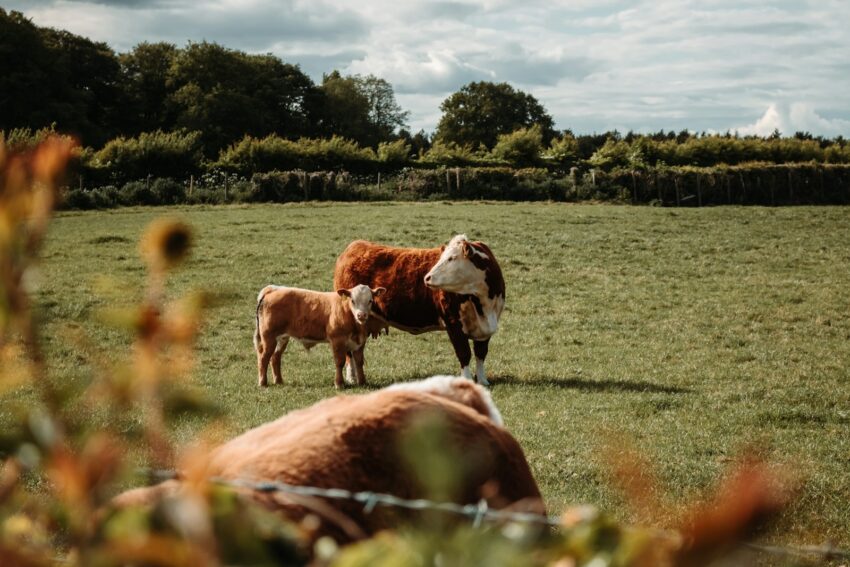Choosing the right electric fence wire shapes how well livestock stay contained and protected. The type of wire used affects not only the strength of the boundary but also how easily it can be installed, maintained, and adjusted over time. The best choice of wire depends on whether the fence needs to be permanent, portable, highly visible, or weather-resistant.

Different wires serve different purposes, and each has strengths that suit specific farming needs. Some provide long-term durability, while others prioritise quick setup or improved visibility in the paddock. By understanding these options, anyone managing livestock can make a clear decision that balances practicality, cost, and effectiveness.
High-Tensile Steel Wire for durable, permanent fencing
High-tensile steel wire is a common choice for permanent electric fencing because it combines strength with long service life. Farmers use it to build fences that can handle pressure from large animals like cattle without sagging or breaking. It also carries electric current over long distances with little loss.
This type of wire requires proper tensioning to work well. Once tightened, it remains firm and resists stretching, reducing the need for frequent adjustments. Its durability makes it suitable for boundary fences and large paddock divisions.
Galvanised steel is the most common form, as it resists rust and performs well outdoors. Aluminium is another option, offering lighter weight and good conductivity, though it costs more. Both choices offer a solid foundation for permanent fencing systems.
Many property owners opt for high-tensile wire for electric fencing due to its cost-effectiveness, strength, and low maintenance requirements. It works especially well in larger installations where the fence must remain effective for many years.
Gallagher Polywire for portable and easy installation
Gallagher polywire provides a practical solution for farmers who require a temporary or movable fence. It is lightweight, making it easy to carry and set up in various areas of a property. This feature enables users to shift paddocks or create quick boundaries with minimal effort easily.
The wire combines strands of stainless steel and copper to provide strong conductivity. As a result, it carries power more effectively than standard polywire, which helps maintain a consistent fence charge. This design also supports longer runs without significant power loss.
Durability is another strength, as the material resists rust and damage from sun exposure. Farmers can use it across different seasons without constant replacement. This makes it a cost-effective option for short-term or semi-permanent fencing.
Additionally, the polywire is compatible with reels and posts specifically designed for portable systems. It can be cut, spliced, and rewound with ease, which saves time during setup and pack-up. These qualities make it practical for managing livestock movement and protecting crops.
Polytape with a wide surface for high visibility
Polytape stands out because of its wide, flat surface that makes it easy for animals to see. Horses and other livestock often respond better to fencing that is more visible, which helps reduce accidental contact. This feature can lower the risk of injury compared to a thinner wire.
The tape often comes in bright colours, such as white or red, which increases contrast against the surrounding landscape. This added visibility can be especially useful in paddocks with large open areas or in low-light conditions.
In addition to visibility, polytape carries electric current through fine metal strands woven into the tape. The number of strands affects conductivity and the strength of the shock delivered. Shorter fence runs usually need fewer strands, while longer runs often benefit from more conductive material.
Farmers often use polytape for temporary or rotational grazing systems. It is lightweight, easy to set up, and simple to move. This makes it a practical choice for those who need flexibility without permanent fencing.
Aluminium Wire for lightweight and corrosion resistance
Aluminium wire offers a good balance of strength and conductivity for electric fencing. Farmers often choose it because it is much lighter than steel, which makes handling and installation easier. This lighter weight also reduces strain on posts and fittings.
In addition to being easy to work with, aluminium resists rust and weather damage better than many other metals. This makes it a practical choice in areas with high rainfall or coastal conditions where corrosion can shorten the life of other wires.
Another advantage is its low electrical resistance. Because current flows more efficiently through aluminium, longer fence lines can carry power without needing extra energisers. This helps maintain consistent voltage across the entire fence.
However, aluminium is softer than steel, so it may not suit situations where animals push hard against the fence. In those cases, stronger wire types may provide better durability. Farmers often weigh strength against conductivity before deciding if aluminium is the right fit for their property.
Solar-Powered Fence Energiser compatibility check
A solar-powered fence energiser must match the type of wire in use. Some wires carry power more effectively than others, so the energiser needs enough output to keep the fence active across the full length. Thicker or multi-strand wires usually handle power better than thin single strands.
The energiser also depends on a battery charged by a solar panel. If the wire draws more power than the energiser can supply, the fence may lose strength. Therefore, it is important to check both the joule rating of the energiser and the total distance of wire installed.
Different livestock require different levels of shock to stay contained. For example, larger animals often need stronger output than smaller ones. The energiser must deliver adequate power through the chosen wire to meet these needs.
The weather also affects performance. Cloudy periods reduce solar charging, which can lower output. A properly sized energiser and battery help maintain steady power so the fence continues to function across changing conditions.
Conclusion
Choosing the right electric fence wire depends on livestock type, land conditions, and whether the fence is temporary or permanent. Poly wire, tape, and rope suit short-term setups, while high-tensile steel offers strength for long-term use.
Farmers should also match the wire with a suitable energiser to maintain consistent performance. Proper maintenance, such as checking connections and repairing damage, helps the system last longer.
By weighing durability, cost, and ease of use, they can select a wire that keeps animals secure and reduces future problems.
